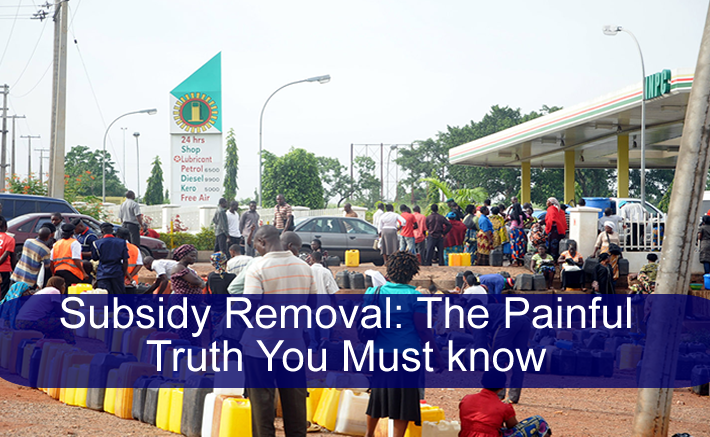At first glance, the idea of subsidy removal may seem commendable, but implementing it through unilateral decision-making would be a monumental blunder. Such a course of action would undoubtedly impose undue hardships on Nigerians, particularly the impoverished segment of the population. Allow me to guide you through the intricacies of this matter.

The Nigerian petrol subsidy bill signifies the funds allocated by the government to subsidize the cost of petrol for its citizens.
In Nigeria, the government regulates the price of petrol and often sells it at a rate lower than the prevailing market price. The disparity between the regulated price and the market rate is subsequently covered by the government as a subsidy.
It is crucial to recognize that a substantial portion of the government’s budget is expended on petrol subsidies, thereby straining its financial resources. Moreover, the subsidy system has fostered corruption and inefficiencies in petrol distribution, as unscrupulous entities exploit the system to amass illicit profits.
Numerous endeavors have been undertaken to address the issue of subsidies. These efforts have encompassed initiatives to deregulate the downstream petroleum sector, granting market forces the authority to determine petrol prices.
However, these reforms have encountered opposition from labor unions and other groups, apprehensive that deregulation would lead to elevated petrol prices and exacerbate the plight of ordinary Nigerians.
Let us ponder: is the subsidy truly the root problem, or does corruption bear the blame? If we sever the hands of a thief, will that deter them from stealing?
Is Nigeria’s quandary merely a budget deficit? Would a surplus budget and increased spending alleviate poverty and uplift the standard of living? Allow me to elucidate.
To enhance a nation’s standard of living, certain measures need to be adopted.
Governments can foster economic growth by investing in infrastructure, education, and healthcare while cultivating an environment conducive to business, attracting investment. Additionally, education plays a pivotal role in elevating the standard of living.
Through investments in education, governments can empower citizens with the skills and knowledge required to thrive in the contemporary economy. Furthermore, access to quality healthcare is imperative for improving the standard of living.
Fourthly, governments must address income inequality, for it significantly impacts the standard of living.
Policies aimed at promoting income equality, such as progressive taxation, social safety nets, and minimum wage laws, can effectively tackle this issue.
Additionally, securing basic needs like food, water, and shelter is essential for a favorable standard of living. Governments can ensure access to these necessities by investing in infrastructure, providing affordable housing, and implementing poverty-alleviation measures.
However, it is crucial to grasp that the proposed policy by the new president is likely to falter. This is because Nigeria’s economic failures, deficiencies in education, crumbling infrastructure, inadequate healthcare, and declining living standards stem not from a lack of financial resources, but rather from a dearth of discipline, patriotism, and above all, the rampant plague of public corruption.
Implementing this policy will undoubtedly amplify hardships and contribute to instability. Ninety percent of our budget deficit problems can be attributed to theft, corruption, wastage, duplicated expenditures, and abandoned projects.
The removal of subsidies ought to have been carried out incrementally. Initially, combating corruption, theft, wastage, and duplication of budgetary items should have taken precedence. By accomplishing this, we would have already resolved half of our problems. If more Nigerians transitioned from dire poverty to the middle class, the impact of subsidy removal would be less severe.
Lastly, as a nation, we lack a comprehensive social security income distribution network. Consequently, proceeding with the draconian policy of subsidy
removal at this juncture would inevitably lead to the ultimate burial of over 75 percent of our marginalized population. The new government must prioritize consolidating power, enhancing government efficiency in service delivery, combating corruption within the subsidy system, and improving the standard of living. Only then, in due course, should subsidy removal be pursued gradually and in a phased manner.
In summary, while the idea of subsidy removal may hold promise on the surface, implementing it without due consideration and careful planning would be an egregious misstep. Nigeria’s challenges lie not solely in the subsidy system but in deep-rooted issues such as corruption, lack of discipline, and a deficient social security network. By prioritizing comprehensive reforms, addressing corruption, and uplifting the standard of living, the government can pave the way for a more sustainable and equitable future. Only then can subsidy removal be a well-calibrated step towards progress.
